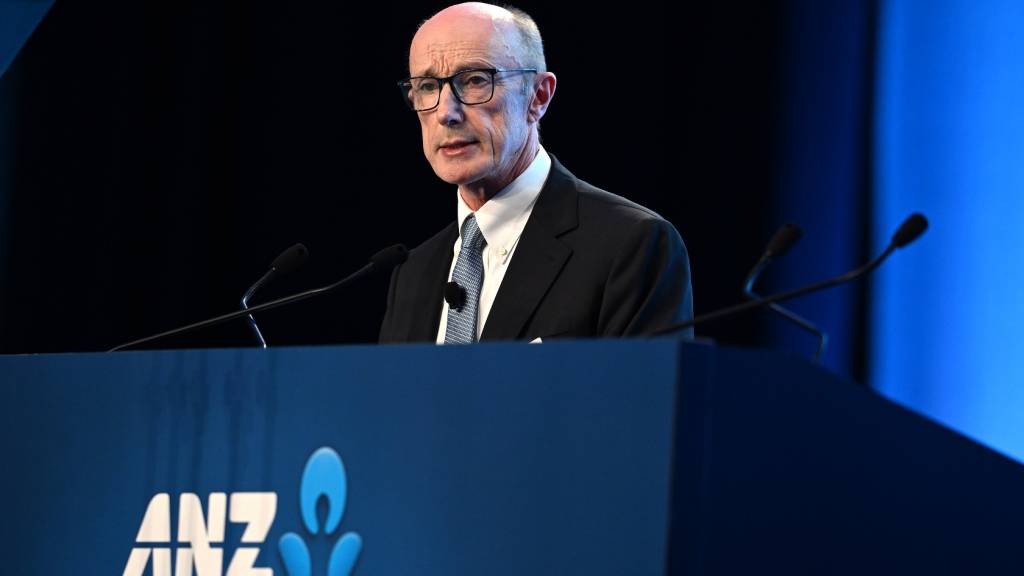By Bernard Keane
Copyright crikey

Why is ANZ chair Paul O’Sullivan — a director since 2019 and chair of the bank since 2020 — still in his job?
The $240 million fine the Australian Securities and Investments Commission (ASIC) has levied on the bank, for conduct the bank spent much of recent years trying to wave away as a non-event, is only the latest example of misconduct from one of the big banks.
ANZ is paying $125 million for acting “unconscionably” in a $14 billion bond deal for the Australian Office of Financial Management and incorrectly reporting its bond trading data, and $115 million for misconduct toward customers. The latter included failing to respond to hundreds of customer hardship notices or have proper hardship processes in place, making false and misleading statements about its savings interest rates and failing to pay promised interest rates to tens of thousands of customers, failing to refund fees charged to thousands of dead customers, and not responding to relatives of deceased customers within required timeframes.
A year ago, then CEO Shayne Elliott was desperately trying to play down the bond trading scandal — but $125 million is an awful lot of nothing to see here. ASIC’s investigation into the bond misconduct was underway when Treasurer Jim Chalmers approved ANZ’s acquisition of Suncorp’s banking arm last year, with the government limited by legislation from using the investigation as a basis for knocking back the sale.
Yesterday’s fine is in addition to the main banking regulator, APRA, imposing what it calls a capital overlay of $1 billion on ANZ in April of this year — up from previous add-ons of $500 million (2019) and $750 million (August 2024). The April action followed a court-enforceable undertaking from ANZ to address weaknesses in operational risk and compliance, stemming from issues identified in an independent review of ANZ’s Markets business.
On top of this, improving its processes will cost the bank at least $150 million in extra spending, which ANZ says will come from cutting investment elsewhere.
That comes on top of $353 million that ANZ was forced to pay back or as compensation to tens of thousands of customers as a result of action by ASIC in the wake of the Hayne royal commission. It seems that ANZ just couldn’t get enough of mistreating and abusing its customers — it had to go back for more.
“Time and time again, ANZ betrayed the trust of Australians,” ASIC chairman Joe Longo said in Monday’s statement. “The total penalties across these matters are the largest announced by ASIC against one entity and reflect the seriousness and number of breaches of law, the vulnerable position that ANZ put its customers in and the repeated failures to rectify crucial issues.”
But O’Sullivan is still trying the Elliott line of downplaying the whole business, insisting the bond scandal was just a “mistake” and not intentional. He’s also using that well-worn cliché we’ve heard from the banks so often — that it’s committed to change. Or, in this case, “transformation”, under Elliott’s replacement, the redundancy-wielding Nuno Matos.
ANZ’s much-abused customers, including the widows who couldn’t pay for their husbands’ funerals because of ANZ, must be wondering whether this “transformation” promised by O’Sullivan will be any different given ANZ was forced to cough up over a third of a billion dollars for its Hayne-era rip-offs.
O’Sullivan might have arrived as the dust was settling on the scandals and outrages unearthed by Hayne, but he’s been chair since 2020 and presided over the bank returning to its vile and grubby ways, the outrage of misleading taxpayers, and his CEO trying to wave it all away as no biggie.
Ken Henry quit NAB for a bad day in the office in front of Hayne and went along with CEO Andrew Thorburn. Westpac’s Lindsay Maxsted and CEO Brian Hartzer quit in response to the colossal money laundering scandal that enveloped the bank in 2019. CEO Ian Narev quit the Commonwealth Bank over a financial product scandal. It’s long past time O’Sullivan followed their example and showed some accountability for what is now a long list of scandals in his bank.



